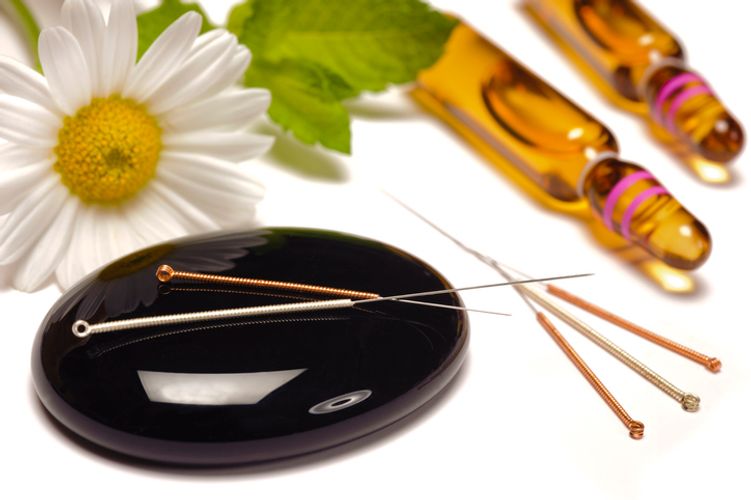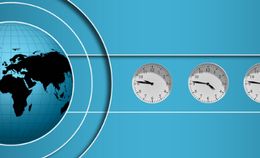The thought of having acupuncture can seem mysterious. Without a tangible understanding of what the experience of receiving acupuncture will be like, you may find yourself having similar thoughts as Timothy; "I thought it would be bizarre and I thought it would be just somebody sticking pins all over me. I thought it would be very painful and I thought just the experience of laying, sitting, with the needles hanging out would be extremely uncomfortable."
You don't need to feel like Timothy or have the preconceptions of acupuncture that lead to concern. Many people want to know what acupuncture treatment is like and how long it would take for acupuncture to help? In this article, we are going to explore the answers to these questions so that you can walk into your first acupuncture appointment prepared and ready for the healing experience.
Table of contents
When is Acupuncture a Good Option?
7 Things to Expect from Your first Acupuncture Treatment
How long it takes for acupuncture to help?
We are Here to Help
References
When is Acupuncture a Good Option?
Wondering if acupuncture is a good option for you? Here's a list of five types of symptoms can lead a person to seek acupuncture. And If you're experiencing one of these, you'll want to find the right acupuncturist and start treatment to discover how acupuncture can help.
-
Comfort: Living in a state on feeling of discomfort because of your symptoms.
-
Pain: Experiencing pain at a variety levels
-
Inconvenient: Stopping day-to-day living because your symptoms get in the way of living the way that you want to.
-
Impairing: Preventing functions of life that fulfill you
-
Distressing: Causing frustration because of how symptoms interfere with ever day experiences.
7 Things to Expect from Your first Acupuncture Treatment
When going in for an acupuncture appointment, here are seven things to expect:
-
Interview: A practitioner will ask you questions to best serve your needs and diagnose your challenges.
-
Check pulse: Your pulse will provide information to the practitioner about your overall health and aid in them in knowing the needed placement of your treatment needles.
-
Examine tongue: Do not brush your tongue, or drink/eat anything with a dye that will change your tongue before going to your acupuncture appointment. You will be asked to stick your tongue out - the acupuncturist is doing this to gather more information about your health. It is one of the other factors that they use to make decisions about how to help you.
-
Needle insertion: In the next step of treatment, needles are inserted based on what is being treated and the type of acupuncture you are receiving. At insertion of a needle, you may experience a tingling feeling but it should not be painful. This is because the needles are often flexible and thin.
-
Needle re-stimulation: The acupuncturist may re-stimulate the needles to aid in stimulation of qui movement throughout your body.
-
Needle removal: At the completion of your acupuncture session, the needles will be removed.
-
Discussion: Before leaving the acupuncturist's office, expect to have a discussion about your treatment, experience, and any follow-up treatments you both agree on based on what will best help you with your symptoms that you are experiencing.
How long does it take for acupuncture to help?
The length of time it takes and the number of sessions it will take for acupuncture to help varies. It varies the individual being treated. Acupuncturists conduct their interviews at your first appointment not only to get to know you, but also to gain a perspective on the symptoms that you are experiencing. This is important because although you may have the same symptoms as another person you don't experience them exactly in the same way as them. You are unique and the symptoms you experience are unique to you. With acupuncture treatment, there are five factors that can differ from person to person when it comes to how long it will take for acupuncture to help:
-
Length of time per session
-
Number of sessions
-
The time between sessions
-
The symptoms presented
-
The severity of the symptoms
At the end of your interview with an acupuncturist and initial first visit, as described, the last step is to have a discussion. This is where you will get an idea of how many sessions you will potentially need totally, and how long it will take you to start feeling better or any effects on the symptoms you are experiencing. If you schedule acupuncture sessions two for three times a week you may find yourself alleviate from your adverse symptoms faster than if you are are recommended to have twelve sessions on a biweekly time interval of you live with PTSD. On the other hand, if you simply have a common cold, you many only need three treatments at the most to help your body heal from the cold.
We are Here to Help
No matter what your reason for seeking acupuncture treatment, you now have an idea of what to expect and when to start seeing and experiencing the many benefits of acupuncture.
References:
Bishop, F. L., & Lewith, G. T. (2013, May 13). Patients' preconceptions of acupuncture: A qualitative study exploring the decisions patients make when seeking acupuncture. Retrieved June 21, 2018, from https://www.ncbi.nlm.nih.gov/pubmed/23664032





















